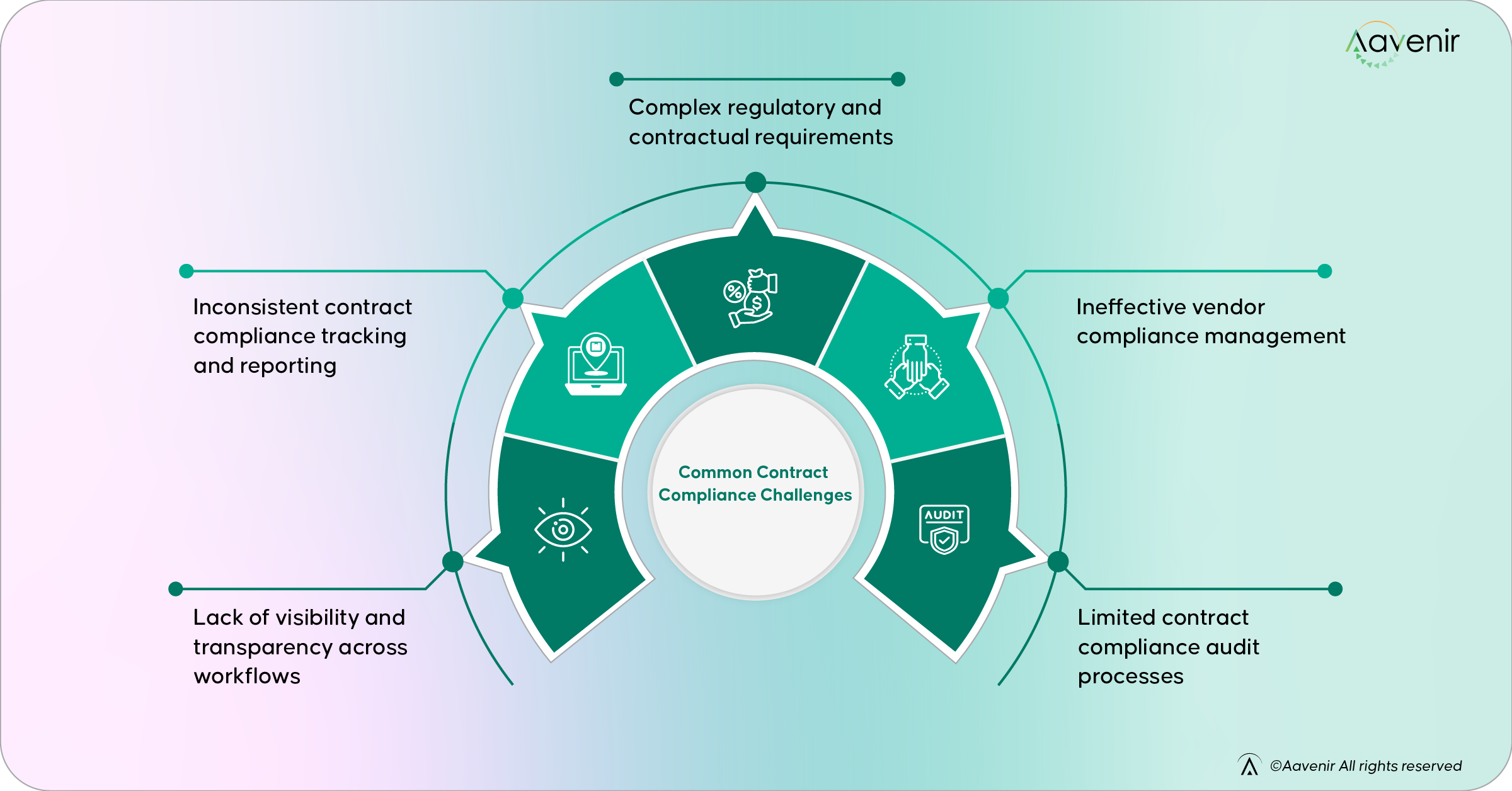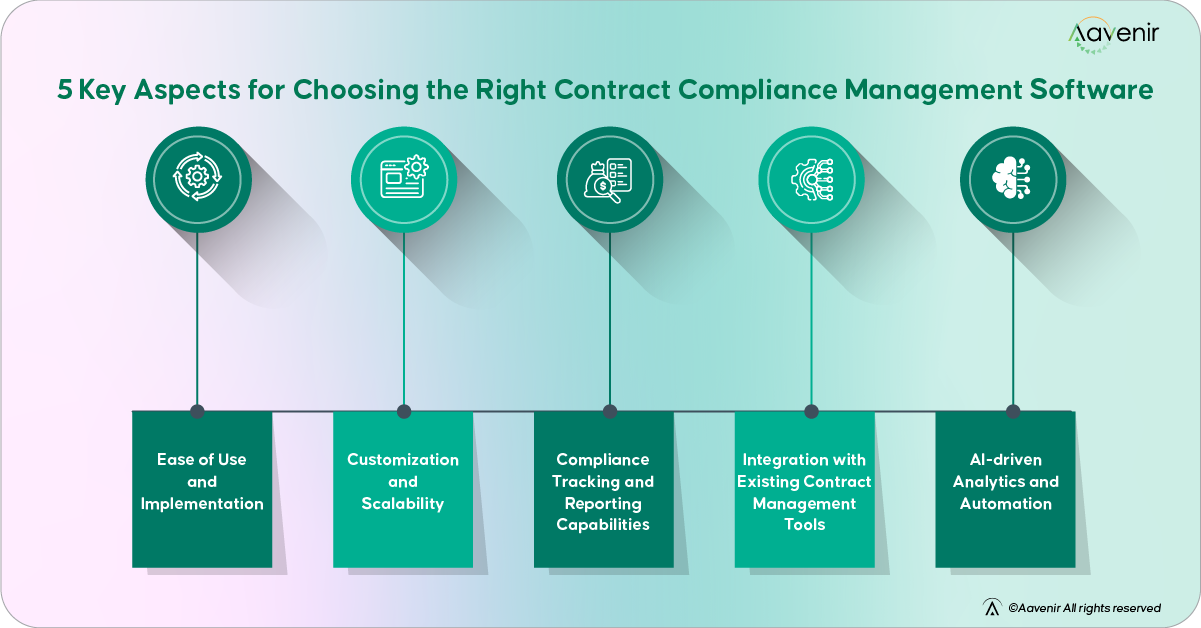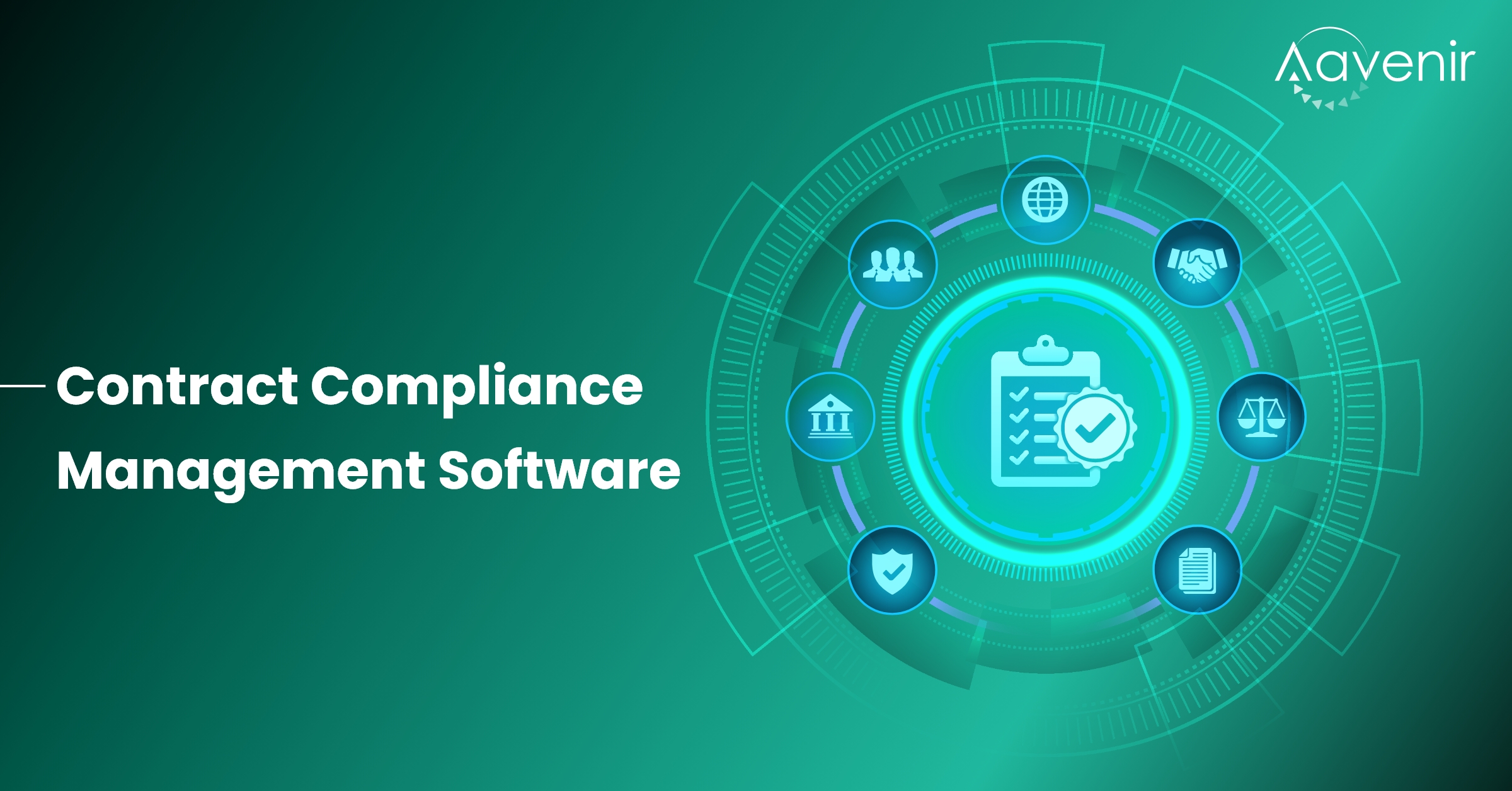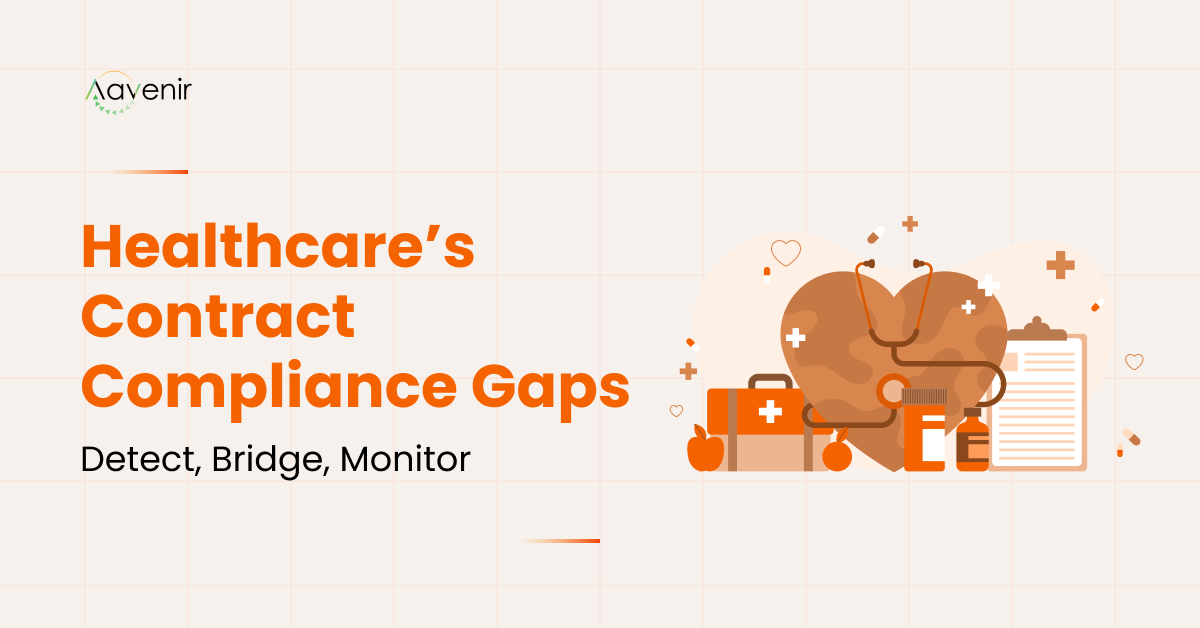Contract compliance involves ensuring that all parties involved (in a contract) adhere to the terms, conditions, and specifications outlined within the agreement. This process helps guarantee that the services or products delivered meet the agreed-upon standards and that all legal, regulatory, and ethical obligations are fulfilled.
It helps businesses mitigate risks, sidestep penalties, resolve disputes, and safeguard their reputation, making it indispensable for managing enterprise contracts.
Contract Compliance Management Software empowers organizations to track and manage their compliance obligations efficiently. These solutions enhance visibility across the contract lifecycle, minimize errors, and bolster governance—ensuring that contracts are executed smoothly and in line with regulatory standards.
This article will explore the nuances of contract compliance software and help enterprises select the right option for their needs.
Understanding Contract Compliance
Contract compliance ensures that all obligations, legal requirements, and internal policies are met throughout the lifecycle. It involves tracking contract compliance, enforcing terms, and adhering to industry regulations.
Key Aspects of Contract Compliance
The three key aspects of contract compliance include:
- Adherence to contract terms: This includes clauses and policies related to pricing, service levels, and legal obligations. Transparent collaboration among stakeholders is crucial for contract term compliance.
- Monitoring obligations, deliverables, and timelines: Tracking essential milestones, deadlines, and performance metrics is crucial for proactive obligation management and for preventing delays and disputes.
- Managing risks and avoiding penalties: Contract compliance audits help businesses find financial and legal vulnerabilities. Teams can immediately take evasive action to mitigate risks and minimize penalties.
Common Contract Compliance Challenges
Enterprise contract teams and their stakeholders encounter various roadblocks while ensuring contract compliance, such as:
- Lack of visibility and transparency across workflows: Most contract teams struggle with decentralized contract data, where documents and other essential information are scattered across multiple software.
- Inconsistent contract compliance tracking and reporting: Manually monitoring everything can lead to errors, delays, and overlooked obligations. Enterprises need to standardize contract compliance execution to ensure company-wide uniformity.
- Complex regulatory and contractual requirements: Businesses must adapt to evolving regulations, industry standards, and stakeholder expectations. It can complicate contract compliance tracking and reporting as processes iterate over time.
- Ineffective vendor compliance management: Enterprise contract teams may find it challenging to hold third-party vendors accountable for adhering to policies and regulations with suboptimal vendor management workflows.
- Limited contract compliance audit processes: Audits are crucial for identifying compliance gaps, risks, and potential opportunities. However, companies may struggle to keep up with the needs of a changing marketplace in the long term.

What is Contract Compliance Management Software?
Contract compliance management software helps enterprises track, monitor, and enforce compliance with contractual obligations. These solutions automate contract compliance tracking and reporting, centralize contract data, and enhance enterprise collaboration.
The broader objective contract compliance software achieves is, ensuring all parties fulfill their commitments on time.
The tool offers real-time visibility into obligations and sends reminders to stakeholders for key milestones. It also flags potential non-compliance issues, enabling teams to enforce contract terms proactively.
Moreover, contract compliance management software facilitates contract compliance audits through a centralized data repository and comprehensive reporting capabilities. Teams can view audit trails to gain clear visibility over their contract compliance management workflows.
Why Businesses Need Contract Compliance Software
As modern contracts become complex and multilayered, businesses may find it challenging to execute them effectively throughout their lifecycle.
Contract compliance management software helps enterprise teams navigate those challenges to mitigate risks, ensure regulatory adherence, and improve operational efficiency. It minimizes the likelihood of legal penalties, client churn, and reputational damage.
Some of the best contract management software offer compliance tracking benefits like:
- Enhances contract compliance tracking by automating compliance checks, minimizing manual errors, and improving contract oversight.
- Improves vendor compliance management through real-time visibility into vendor performance to ensure adherence to service level agreements, pricing policies, and regulatory requirements.
- Supports contract risk compliance by flagging potential vulnerabilities early to keep the teams agile and enable them to take evasive action.
- Streamlines contract compliance audit processes with a single source of truth and comprehensive auto-generated reports.
Apart from ensuring compliance, contract compliance software also elevates collaboration among contract teams, simplifies document management, and encourages vendor accountability. On top of that, enterprise teams can look forward to efficient processes and decreased administrative workload.
Key Features of Contract Compliance Management Software
Modern contract compliance management software comes with a range of essential features designed to automate key processes and help enterprises meet legal, regulatory, and business requirements efficiently.

Let’s look at some of their essential features that automate critical processes and ensure enterprises meet legal, regulatory, and business requirements efficiently.
1. Automated Contract Tracking
Automated contract tracking enables enterprise teams to monitor obligations, timelines, and deliverables throughout the contract lifecycle. It removes the inefficiencies associated with manual tracking and helps all stakeholders fulfill their obligations promptly.
Companies can minimize missed deadlines, avoid disputes, minimize penalties, and improve contract governance.
2. Real-time Compliance Monitoring
Real-time compliance monitoring ensures adherence to legal, regulatory, and business requirements by providing continuous oversight of contractual obligations. This functionality is crucial for maintaining contract risk compliance as it detects vulnerabilities early.
Enterprise contract teams can identify inconsistent or incorrect clauses and policies before they escalate to address them proactively, upholding compliance status throughout the lifecycle.
3. Risk Mitigation & Alerts
The risk mitigation and alerts feature recognize non-compliance issues to notify appropriate contract team members for proper action. Contract compliance management software flags potential breaches and triggers automated alerts.
Contract managers can stay updated on due obligations, active documents, or regulatory risks to prevent costly disputes down the line.
4. Audit & Reporting Tools
Audit and reporting tools in contract compliance software generate comprehensive summaries of contract compliance trends and performance. Teams can gain actionable insights into contract performance, risk areas, and vendor management.
This can help organizations optimize their overall contract management strategies to further bolster compliance and regulatory adherence.
5. Integration with Other Business Systems
Contract teams use different software to manage contracts from creation to termination or renewal. These tools must seamlessly connect to streamline contract lifecycle management (CLM).
Modern contract compliance management software easily integrates with Enterprise Resource Planning (ERP), Customer Relationship Management (CRM), and CLM systems to ensure data centralization and improved collaboration.
Benefits of Using Contract Compliance Management Software
Contract compliance software does more than help parties adhere to relevant regulations and policies throughout the lifecycle. For teams in large businesses and enterprises, this software brings many advantages:
1. Fewer Legal & Financial Risks
Automated contract compliance tracking ensures that all obligations, deadlines, and regulations are met appropriately. This reduces the likelihood of clause breaches and penalties, minimizing legal and financial risks for organizations.
2. Improved Operational Efficiency
Contract compliance management software tracks obligations, prepares for audits, and assesses risks automatically. This reduces manual efforts and errors, elevating productivity and efficiency across contract teams.
3. Enhanced Visibility & Accountability
A centralized contract compliance system offers real-time dashboards for key performance indicators (KPIs) such as adherence rate, fulfillment rate, and penalty incidents. This provides stakeholders with immediate actionable insights to remain agile.
4. Better Vendor & Supplier Relationships
With contract compliance management software, enterprises can track vendor obligations, assess their performance, and effectively enforce contract terms. This fosters long-term, mutually beneficial relationships with suppliers and service providers.
How to Choose the Right Contract Compliance Management Software

Businesses may struggle to identify the best contract compliance management software. Here are 5 factors teams can look at to determine whether a contract compliance tool is right for them:
1. Ease of Use and Implementation
A user-friendly interface helps enterprise contract teams quickly adapt the tool to their daily operations. Solutions with steep learning curves will slow compliance efforts, reduce productivity, and increase change resistance.
2. Customization and Scalability
It is key to adapt to evolving stakeholder needs and industry regulations to ensure contracts comply with laws and internal policies. Teams should be able to customize the contract compliance tool as per their workflow needs.
Similarly, the solution should easily accommodate the increased volume and complexity of contracts without affecting the contract lifecycle management software’s pricing or performance.
3. Compliance Tracking and Reporting Capabilities
Contract compliance software should help you monitor obligations, deadlines, and regulatory statuses. It should also provide real-time compliance alerts, generate detailed audit reports, and offer data-backed insights.
This is critical for teams looking to elevate their contract compliance management processes continually.
4. Integration with Existing Contract Management Tools
As mentioned above, enterprise contract teams use multiple tools during daily operations, including ERP, CRM, and CLM solutions. Contract compliance management software should integrate seamlessly with these tools to provide a unified source of information for the company.
5. AI-driven Analytics and Automation
Advanced contract compliance management software leverages large language models (LLMs) to identify compliance trends, recognize sentiment, predict risks, and recommend corrective actions.
Professionals can send queries in natural language to contract management chatbots and receive data-backed answers.
Automation offloads administrative tasks like sending follow-ups and writing reports, allowing contract teams in organizations to focus on more strategic initiatives. This improves accuracy and efficiency, minimizes risks, and strengthens compliance further.
Wrapping Up
Contract compliance is crucial for mitigating legal and financial risks, maintaining operational efficiency, and upholding strong stakeholder relationships.
Enterprises can simplify this process with contract compliance management software.
Contract compliance management software helps teams ensure their contracts adhere to legal, regulatory, and internal policies. This is critical for preventing contract nullification, minimizing risks to parties, and avoiding legal disputes or conflicts.
Interested in learning how contract compliance management software can help your processes?Contact us today for a personalized demo.
Frequently Asked Questions
What is contract compliance management software, and why do enterprises need it?
Contract compliance management software helps enterprises track, monitor, and enforce contractual obligations while ensuring legal and regulatory compliance. It automates contract compliance tracking and reporting, reducing risks, improving efficiency, and preventing financial penalties due to missed obligations or non-compliance.
How does contract compliance tracking improve risk management?
Contract compliance tracking identifies potential risks early by monitoring obligations, deadlines, and regulatory changes. Automated alerts notify contract teams of upcoming requirements, reducing the odds of non-compliance. This proactive approach helps enterprises mitigate contract risk compliance issues before they escalate.
What key features should enterprises look for in contract compliance management software?
Essential features include automated contract compliance tracking, real-time reporting, risk mitigation alerts, contract compliance audit capabilities, and integration with existing contract management systems. AI-driven analytics also enhance compliance monitoring, ensuring enterprises stay ahead of regulatory and contractual requirements.
How does contract compliance software improve vendor compliance management?
The software centralizes vendor obligations, tracks performance, and ensures suppliers meet agreed terms. Automated compliance checks and reporting improve transparency, reduce contract disputes, and strengthen vendor relationships by ensuring mutual accountability and adherence to contract terms.
Can contract compliance management software integrate with existing enterprise systems?
Yes, leading solutions integrate with contract lifecycle management (CLM), enterprise resource planning (ERP), and customer relationship management (CRM) systems. Seamless integration ensures data consistency, enhances compliance tracking, and optimizes contract workflows across departments, reducing manual effort and improving overall efficiency.





